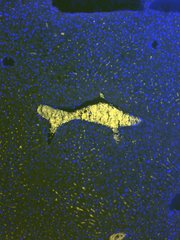I also enjoy seeing Monadnock as the Word-of-the-day, because its etymology has always bothered me. According to Wordsmith, Mount Monadnock is "a peak in New Hampshire, whose name in Algonquian means isolated mountain." What bothered me was that monad in English meant "a single, isolated unit" and knock in English meant "hill", so somehow the Algonquian and English languages had undergone some sort of crazy convergent evolution culminating in a single word, Monadnock, that meant the same thing in both languages. So today, I did some research and found, "Algonquian Names of Some Mountains and Hills" by William Wallace Tooker in The Journal of American Folklore, Vol. 17, No. 66 (Jul. - Sep., 1904), pp. 171-179 (available through JSTOR). Tooker says:
man, or mon, is a significant prefix to many word combinations... meaning "wonderful," "wonder," "vision," "revelation," "marvellous," etc. It is from the primary verbal root -an, "surpassing," "going beyond," "is more than the common," with the indefinite impersonal m prefix added, which with its generic -adn, "mountain," and the locative -ock, "place," gives as a synthesis of Man-adn-ock, "land or country of the surpassing mountain."
So, Monadnock is the land of the wondrous mountain, and Mt. Monadnock is the mountain of the land of the wondrous mountain; and the colonists who first heard the locals call the area Man-adn-ock probably felt the same sense of linguistic convergence as I did and assumed Monad-knock was Algonquian for isolated hill.
Next post: as a child I spent a week at the Grand Tetons...





No comments:
Post a Comment